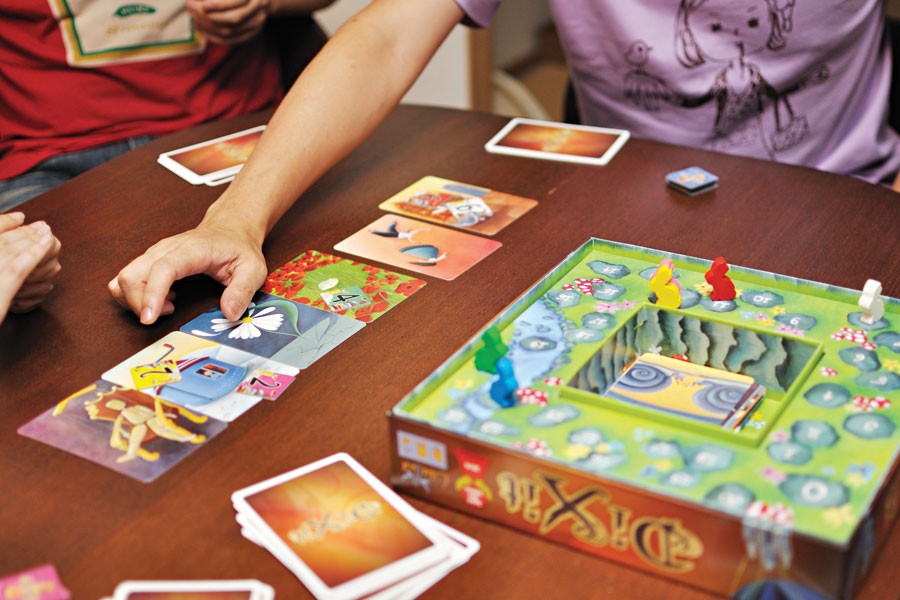Up until now I have mostly written reviews of cute unknown games. But some cute games manage to make the biggest of splashes, and find themselves on every Internet list, blog, and board game website. These games have the resonance to penetrate the minds of the most serious faced men, they stand out.
Dixit is one of those games. It has 84 cards, each of which contains a hand-painted piece of art. These mean everything and nothing, like some form of eastern philosophy. And that’s where the game shines; each piece will generate a different image in your mind every time you look at it.
Each card is meant to kickstart a story. Players take turns to tell a tale. They choose one of the six pictures in their hand, then say something out loud. The rules are purposely left open-ended. Any sound, word or sentence will do, whatever noise the picture stirs. Other players will look at their own cards, and then throw in a picture face down which they think best fits the storyteller’s hint. These cards are shuffled with a card the storyteller chose, and revealed. Players vote on which card they think is the storyteller’s.
The storyteller needs to ensure s/he gives a decent enough hint. If no one figures it out, the storyteller gets no points while the others do. If everyone gets the hint then the storyteller is being uncreative and too obvious and again gets no points.
The game cleverly places the player within the social construct. You end up playing for the people sitting around you. Play on an inside joke, or shared memory, and then only you and the other person who guesses receives maximum points. But there’s always that moment when you think you know someone well and then you realise you don’t; they vote for the wrong card. Just for a second, the game makes you doubt the very fabric of your friendship—then you remember that it’s all just a game.
That’s why Dixit has spawned so many expansions and variations. As it is played, meaning develops around the pictures and by the end of the game that meaning has drifted away. But that doesn’t matter, because soon enough you will want to play Dixit again, and the same pictures suddenly mean something completely different.






Comments are closed for this article!